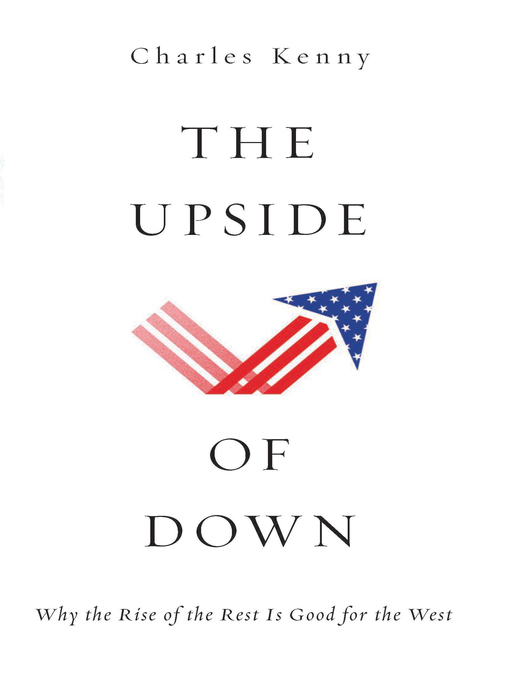
The Upside of Down
Why the Rise of the Rest is Good for the West
کتاب های مرتبط
- اطلاعات
- نقد و بررسی
- دیدگاه کاربران
نقد و بررسی

October 28, 2013
China is poised to overtake the U.S. as the world’s largest economy within the next 15 years, but, according to former World Bank economist Kenny, there is a silver lining for the U.S. economy. Kenny continues in the optimistic vein of his first book, Getting Better, as he explains why America losing its status as the unchallenged global superpower doesn’t have to mean declining living standards for its citizens. “America is a country made great by the founding principles of broad-based democracy, education, civil rights, and openness embodied in ”—qualities that Americans should be glad to see spread throughout the world. As developing countries grow richer and more educated, global values will converge. Kenny decries the simplistic reasoning inherent in judging nations based solely on their GDP or military: “being biggest and among the richest hasn’t helped the United States stake a global lead on measures of the broader quality of life.” Unfortunately, his analysis feels incomplete: the fact that America (and much of the rest of the world) is facing very real economic headwinds goes largely unmentioned. Agent: Rafe Sagalyn, the Sagalyn Agency.

December 15, 2013
If you want to know how the rise of China is affecting your daily life, check the beer cooler. Thirty years ago, writes World Bank senior economist Kenny (Getting Better: Why Global Development Is Succeeding--And How We Can Improve the World Even More, 2011), beer consumption in China was pretty well nonexistent. Today, China "consumes more than 40 billion liters," plenty more than is consumed in the United States. Does that mean that the Chinese are stealing our suds or that brewers are ignoring the American market? Not at all: By Kenny's lights, illuminating his overarching thesis on the positives of development, "beer provides [a] global opportunity for Western brands from Guinness to Schlitz." Faced with declining markets for consumer goods of various sorts in the satiated West, Western concerns can thrive anew with the expansion of markets abroad--not just in China, but in India, Latin America, Africa and everywhere in the developing world, which is acquiring the wherewithal to bring abundance to its people. A moralist might cringe, but to Kenny, this is generally a good thing, not only since innovation will flow from such markets, but also due to the fact that it will help integrate the world economy even further. Arguing against "declinist" views of the West, the author claims that the lifting-all-boats model is largely correct, and if the go-go growth models of the past are likely not to govern the future economy, at least some growth will be possible, an unlikely scenario in an isolationist West with a declining and aging population. The rise of the rest will affect the rest in that sense, too, Kenny writes, since even if "real demand for migration is lower than stated demand," there is still need for skilled workers from abroad to move to America, leading to the continuing internationalization and diversification of American society. An optimistic view of the future economy--refreshing in that sense, but perhaps a touch too rosy, even if written with the dry detachment of an economist.
COPYRIGHT(2013) Kirkus Reviews, ALL RIGHTS RESERVED.

























دیدگاه کاربران